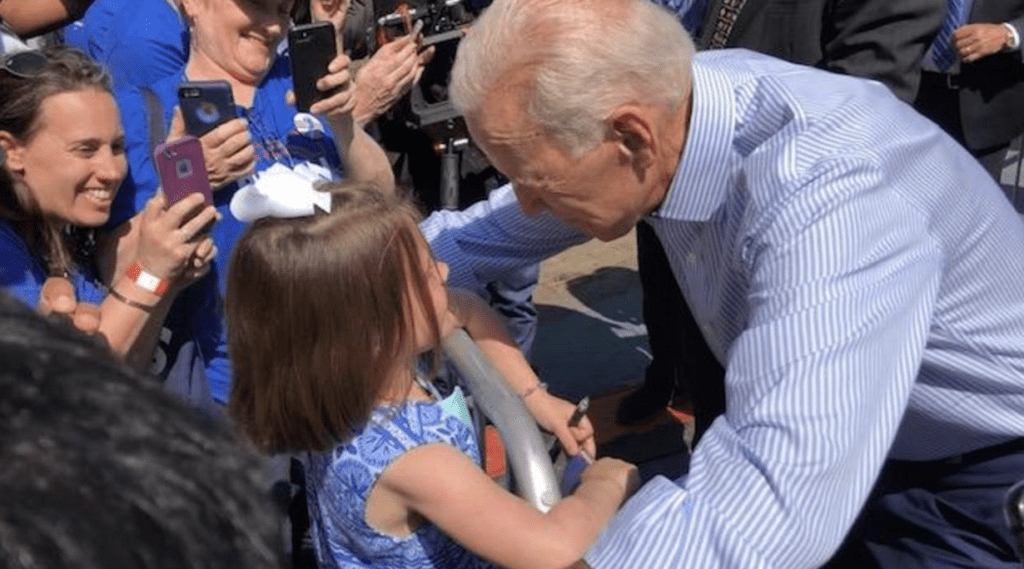The Case for Joe Biden
The former vice president’s experience in both foreign and domestic policy make him a formidable candidate. His decency makes him the perfect foil for the incumbent.

Lisa Van Dusen
May 2, 2019
In the spring of 2008, I was asked in an email who I thought Barack Obama should pick as his running mate. I had been covering the campaign since January and it was clear that the Illinois senator was on the verge of clinching the nomination. I responded immediately: Joe Biden.
My argument at the time was that their strengths and weaknesses complemented each other and that Biden, having lived through the hell of losing his wife and daughter years earlier, possessed genuine empathy, a seriously undervalued, frequently counterfeited quality in politicians. And for voters balky about Obama’s limited foreign policy experience despite the judgment he’d displayed opposing the war in Iraq, Biden’s decades in the Senate, including as chairman of the Foreign Relations Committee, would be reassuring.
Over eight years of finger-gunning, big-f**king deal-ing and genuine empathizing, the former Delaware senator and unofficial Amtrak ambassador owned the role of vice president in a way that proved his value as a policy and political asset — arguably second only to Michelle Obama — and rebranded the Naval Observatory as a base for benign, rational deputy duty after the Machiavellian bruxism of the Cheney years.
His relationship with President Obama was, reportedly, not without its tensions. But the dynamic between the country’s first Black commander in chief and his older, white wingman evolved as a sort of race-relations buddy flick, the redemption arc stretching from Biden’s initial, weirdly antediluvian description of Obama as “The first mainstream African-American who is articulate and bright and clean and a nice-looking guy,” to the mutually respectful, brother-from-another-mother bromance montage it became. Obama’s eulogy at the heartbreaking funeral of Biden’s son, Beau, in 2015 was one of the most moving speeches of his presidency.
When Biden announced his candidacy for the 2020 Democratic nomination last week, he made it clear that America’s biggest problem today is Donald Trump. To observers elsewhere in the world, Biden’s connection of the outrageous Charlottesville riots of 2017 and Trump’s relentless offensiveness to “the battle for the soul” of America resonated as a sane perspective on the need to salvage the country’s moral authority. This is an American presidential election but the global implications and geopolitical stakes — including for Canada on trade and security — are enormous.
In this age of narrative warfare, Biden has already been a target for stories deployed — as though the eight character-revealing, back-to-back-majority-litigated, years of his vice presidency never happened — to drown out his message, turn his strengths into weaknesses and chip away at his front-runner status. That he’s deemed a worthy enough threat to the post-truth, new world order-expediting direction in which America’s been careening lately to warrant such a sustained effort says more than any poll could about his organic electability and fitness for the presidency.
The field of Democratic candidates for president includes women and men who share Biden’s values, who espouse his worldview, who match his intellect — an attribute underestimated because of his trademark lack of pretentiousness. But none possesses those qualities plus the decades of experience with how things are supposed to work — in the absence of tactical intractability, institutional contempt and industrialized levels of misinformation — both in Congress and in the White House.
Among the many previously unthinkable developments in politics since the election of Donald Trump has been the ostensible decoupling of trust from electability. The re-establishment of truth, and therefore trust, to the presidency of the United States isn’t just a political issue. As the former vice president says, it’s an existential one.
Lisa Van Dusen is associate editor of Policy Magazine. She was Washington columnist for the Ottawa Citizen and Sun Media, international writer for Peter Jennings at ABC News, and an editor at AP National in New York and UPI in Washington.
